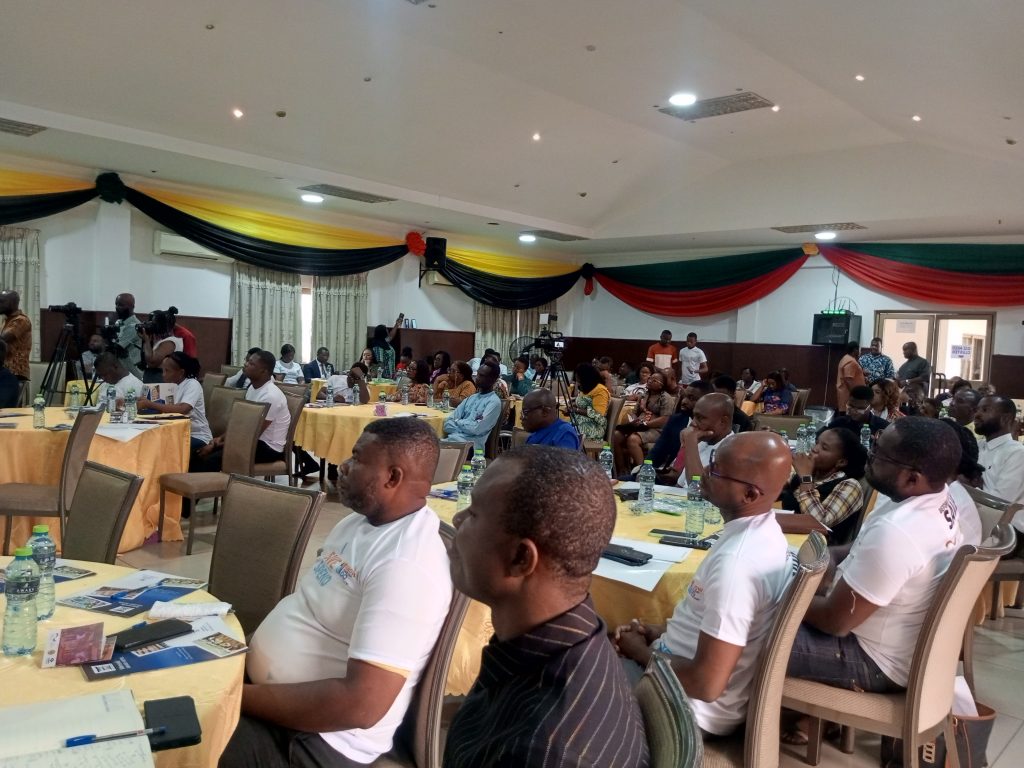By Iddi Yire
Accra, July 11, GNA – A Financial Literacy and Education Campaign (FLEC) to empower Ghanaians with financial knowledge has been launched in Accra.
Dubbed “Know Your Part, Do Your Part”, the campaign is being organised by the Ghanaian financial industry in partnership with the Deutsche Gesellschaft fur Internationale Zusammenarbeit (GIZ) GmbH and funded by the German Government.
This industry wide campaign will be run with the support of all the relevant stakeholders such as the Bank of Ghana, the Ghana Association of Savings and Loan Companies (GHASALC), the Ghana Microfinance Institutional Network (GHAMFIN), the Micro-Credit Association Ghana (MCAG), and the Ghana Association of Micro-Finance Companies (GAMC).
Research shows that only 32 per cent of Ghanaians have the necessary financial knowledge to make informed decisions about financial products and services.
To address this problem, the Ghanaian financial industry launched the FLEC with support of the German Cooperation.
This initiative aims to restore public confidence in the financial sector and dramatically increase financial literacy across the country.
It is estimated that more than one million people will benefit from the campaign.
The three-month campaign on the theme: “Enhancing Financial Education to Promote Financial Inclusion,” promises to deliver impactful financial education and empower Ghanaians to achieve greater financial security and inclusion.

Dr Christian Jahn, Programme Manager at GIZ, in his address at the launch, said: “In Ghana, the German Government has been supporting Ghana’s Financial sector since 2006, focusing on improving MSME access to finance through the Support to the Private and Financial Sector (PFS) Programme, GIZ is excited about this campaign, we foresee it will bring a tremendous amount of value to Ghanaians”.
“We are hopeful that through various media engagements on radio, television, public sessions, and online platforms, we will improve public confidence in the banking sector”.
Mr Godfred Cudjoe of the Financial Stability Department of the Bank of Ghana, said the Financial Literacy Campaign being launched was an intervention that would go a long way to support the Bank of Ghana and the Government’s agenda of inclusive finance as provided for in the National Financial Inclusion and Development Strategy.
He said the intervention was important to the financial sector’s development in the context of Africa’s growing financial landscape.
“It is for this reason that the Bank of Ghana appreciates these efforts by GIZ and continues to support the GIZ for the successful implementation of all interventions geared towards achieving appreciable levels of financial inclusion in Ghana.”
Mrs Patience Arko-Boham, Head of Insurance and Pensions, Ministry of Finance, said financial literacy was one of the critical initiatives that the Government embraced in ensuring that there was inclusive growth among the populace.
She said this had even become more critical with the recent challenges faced in the local financial landscape where individual financial decision making was challenged.
“This is evidenced that financial literacy is always relevant considering the growing complexities in the domestic and global financial markets, and the gap that exists between various financial consumers,” she said.
Madam Cynthia Odonkor, Component Manager, PFS-GIZ, said financial illiteracy could hinder one’s ability to plan, secure loans, or even understand the terms and conditions of basic financial services, ultimately perpetuating a cycle of poverty and economic vulnerability.
She said improved financial literacy would increase the use of financial products and the quality of financial products and services offered, which could positively impact the economy.
She noted that equipping individuals with a better understanding of financial principles could lead to more prudent savings and investment behaviors as financially literate individuals are often in a best position to make better financial decisions regarding savings, borrowing, investing, insurance, and planning for retirement.
GNA